
The changing face of horse riding: Women in the saddle
Horse-riding, a passion of the rich and famous, is often perceived to be a male preserve. A few women are fighting to change the narrative
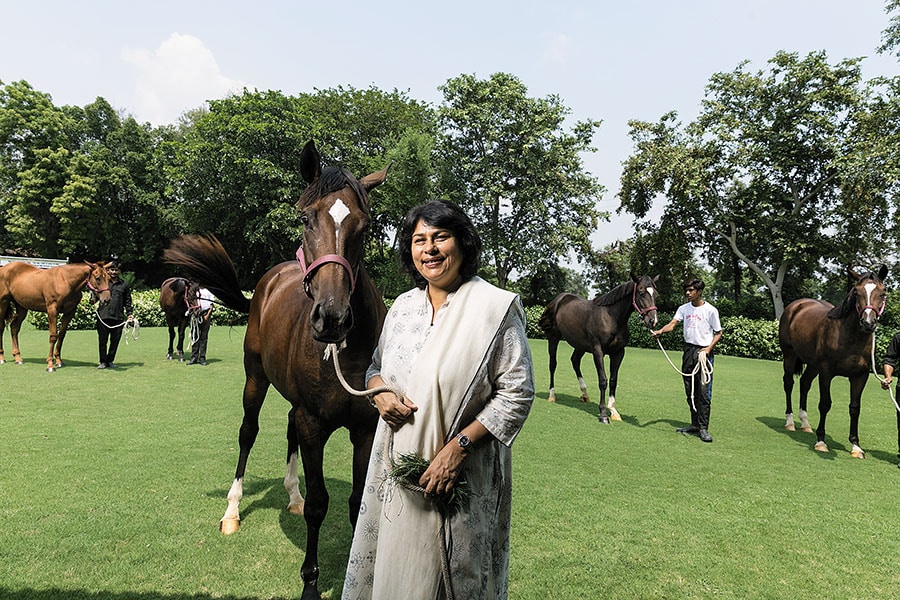 Ameeta Mehra’s Usha Stud Farms has bred 13 derby winners, the highest in the country ahead of 10 for Poonawalla Stud Farms
Ameeta Mehra’s Usha Stud Farms has bred 13 derby winners, the highest in the country ahead of 10 for Poonawalla Stud Farms Image: Madhu Kapparath
It’s 9 on a Sunday morning and much of Pataudi, a town about 100 km from Delhi, is yawning off its sleepiness. At its solitary arterial road, most shops are shuttered, only a few hole-in-the-wall eateries have creaked open for breakfast. Revving Minidors at the town square are awaiting travellers to Gurugram, the nearest big city, but unlike the rush through the week, there’s only a trickle.
However, at the 120-acre Usha Stud Farms, located a few minutes down the Pataudi-Rewari road that branches out of the square, it’s business as usual. Around 10, Dhawaniyan, a dark bay yearling, troops into the round pen for training. Leading him into the arena is Parmeet Kaur, 33, dressed in denims and a striped T-shirt, her hands gripping the lunge reins. Dhawaniyan picks up his cue from Kaur’s cadence every time she sputters instructions, alternating between a walk and trot, or coming to a dead halt occasionally. Kaur may be all of 5’6’’ and Dhawaniyan a strapping 400-odd-kg, but there’s no mistaking who controls the reins.
It’s a rare sight, though, a woman holding mastery over the animal that has fuelled the passion of the rich and famous. For centuries, horse-riding in India has been considered to be elite—a preserve of the likes of billionaire businessmen like stud farm owner Cyrus Poonawalla or industrialist and polo aficionado Naveen Jindal—and masculine. Its gendered image has been buttressed by its association with an institution that is still debating the equality of roles for women—the army, whose 61st cavalry holds the distinction of being its only horsed cavalry unit and known for producing some of the finest equestrian sportsmen in the country.
Given its history, it’s evident why Kaur makes heads turn, and it’s one of the reasons she has been hired by Ameeta Mehra, of Usha Stud Farms, one of the few women in the male-dominated industry. “One of the things I have taken oath for is that if there are any women in my profession, I will back them. Women need to mentor other women for them to rise,” says Mehra.
It’s not an easy path, as Mehra would be the first to admit. Born to Major PK Mehra, she has been around horses since she was three, when she received a Shetland pony as a birthday gift. Since the early 90s, she had been part of her father’s equine business, living on a farm, working shoulder to shoulder with the boys and expanding operations through the decade. Mehra herself has bred seven Indian derby winners, out of a total 13 for the farm, the highest in the country ahead of 10 for Poonawalla Stud Farms. Yet, when she lost her parents and sister in a copter crash in 2001, everyone, her staff included, thought the farm would shut down. “I would meet my competitors who’d tell me ‘we’re sorry for your loss, of course you have to close down now’. My managers thought they needed to get new jobs, my vet went for another interview. Many of my male relatives also offered to step in,” she says. “But I refused. Two days after the accident, I was back at the farm.”
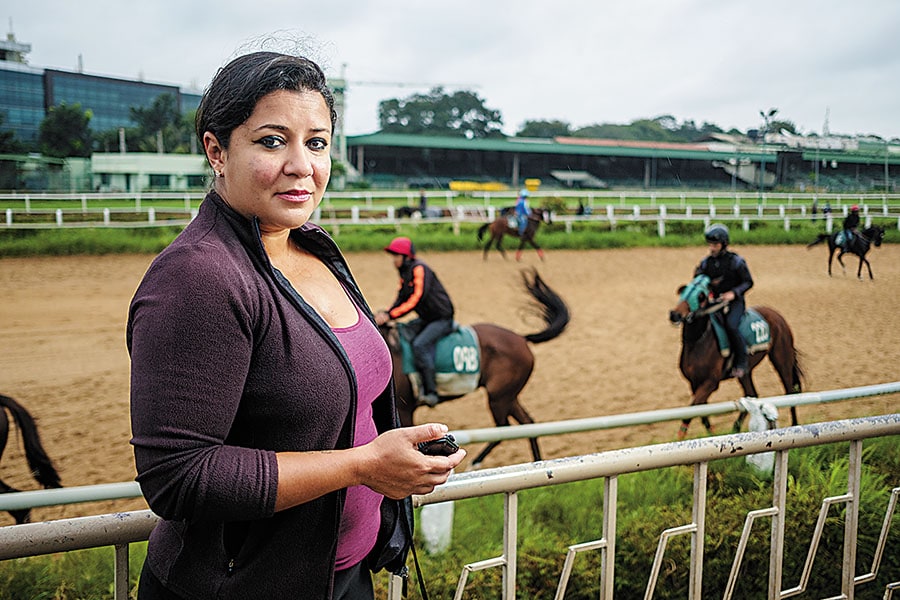 Parvati Byramji, south India’s first woman horse trainer
Parvati Byramji, south India’s first woman horse trainer Image: Nishant Ratnakar for Forbes India
When Mehra started out, one could count the number of women dabbling in horses professionally. For every Arti Doctor, a horse trainer since 1988 in Mumbai and Kolkata, or a Silva Storai, an Italian who settled in India in the ’70s and got her jockey’s licence in 1992, there would be hordes of young girls who would ride for fun and then ditch it for a mainstream profession. Of the ones who stuck around, most would go for equestrian; polo remained on the backseat for its inherent dangers and racing from its perception of being a gambling den.
(This story appears in the 30 November, -0001 issue of Forbes India. To visit our Archives, click here.)

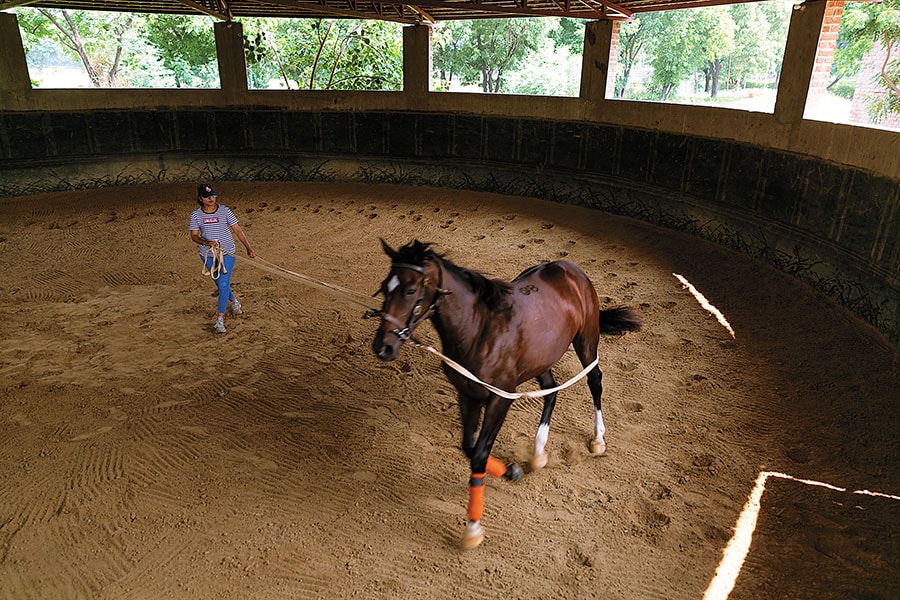 Parmeet Kaur trains a yearling at Usha Stud Farms
Parmeet Kaur trains a yearling at Usha Stud Farms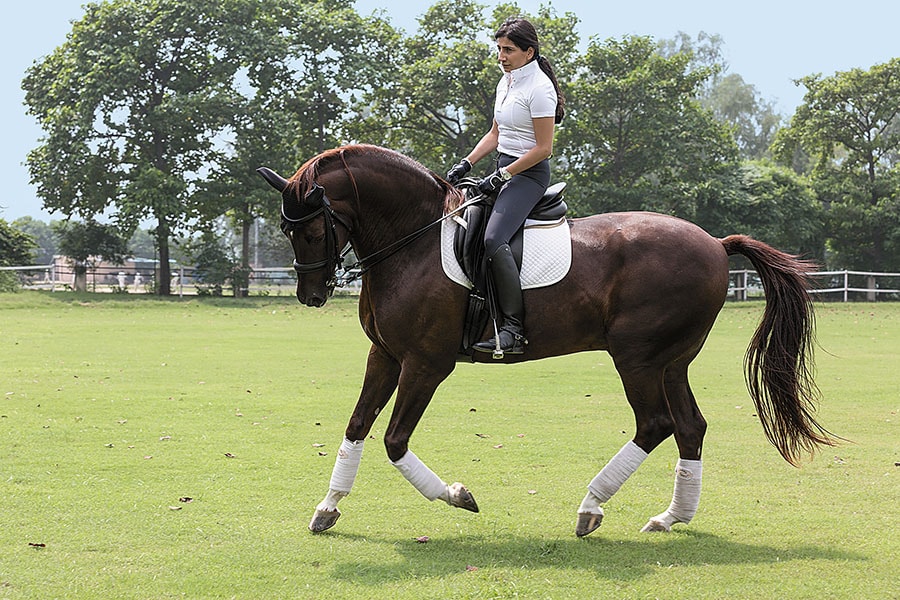 Vanita Malhotra represented India in the 2014 Asian Games as part of its first all-women contingent
Vanita Malhotra represented India in the 2014 Asian Games as part of its first all-women contingent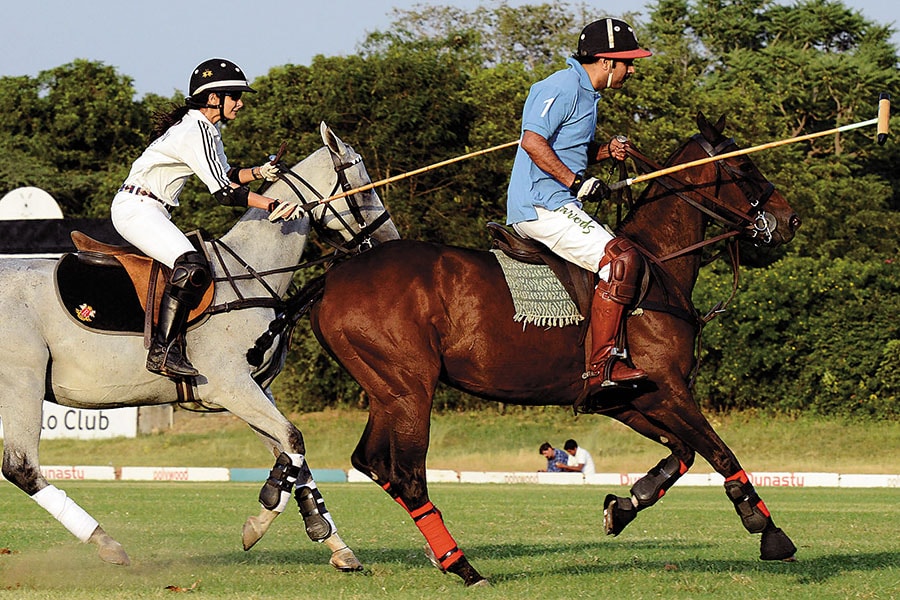 Rinaa Shah (left) started playing polo at 38 and became the first woman to own a polo team in 2013
Rinaa Shah (left) started playing polo at 38 and became the first woman to own a polo team in 2013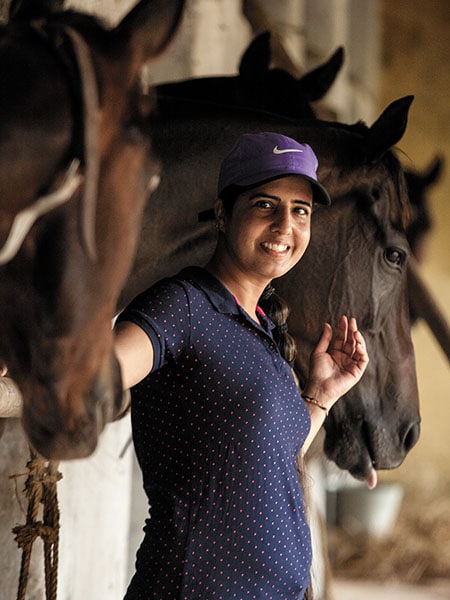 Rupa Singh, India’s first lady jockey and now the subject of a Bollywood biopic
Rupa Singh, India’s first lady jockey and now the subject of a Bollywood biopic



